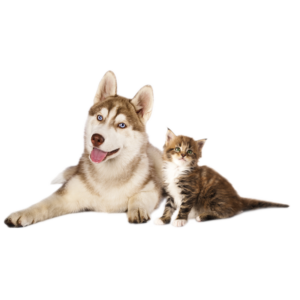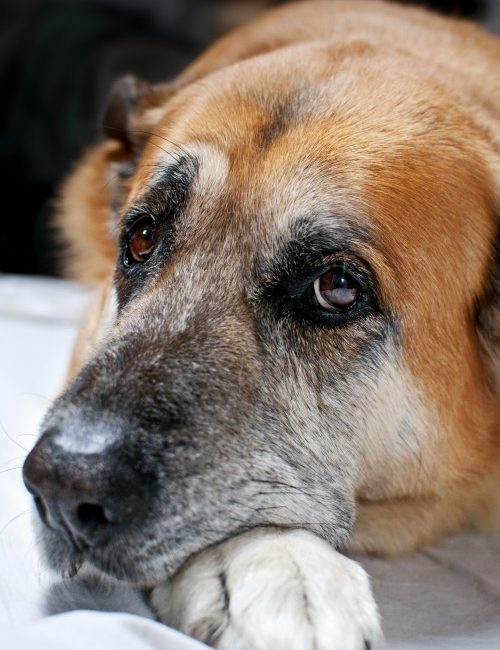When examining aging animals, it is not uncommon to hear statements like “Yeah, he’s slowing down. He is getting old, so I’m not worried.” The truth that many people don’t realize is that age, in and of its self, should not cause your furry family members to “slow down”. Diseases associated with aging are the culprits and there are many things we can do to help our senior pets enjoy their golden years.
The following symptoms are often overlooked because many consider them to be “normal” for the aging pet. However, all of these symptoms are indicative of underlying diseases, and your veterinarian can offer treatments to improve your pet’s quality of life as they age.
• Memory or learning difficulties (i.e. loss of training or house training)
• Spatial orientation difficulties (i.e. gets stuck in a corner)
• Challenges recognizing or reacting to family members
• Changes in grooming habits
• Mobility challenges
• Increased anxiety or night restlessness
• Decreased or increased attention seeking behaviour
• Confusion
• Changes in activity level (especially decreased activity)
• Changes in appetite or drinking habits
• Weight loss
Cognitive Dysfunction
As animals age, there are a number of changes that occur in the brain. The brain atrophies and actually starts to shrink in size and weight. The number of neurons begins to decrease which leads to reduced brain function. The accumulation of beta-amyloid plaques leads to neuron damage. There are also alterations in the levels of neurotransmitters that affect brain function. All of these changes lead to decreased cognitive functioning which is manifested in behaviours such as confusion, disorientation, wandering, sleep disturbances, anxiety, memory loss, excessive licking and loss of housetraining.
There are many supplements, medications, and diets that can help reduce the amount of damage occurring and improve the symptoms associated with cognitive dysfunction, allowing for improved quality of life for your pet. Environmental enrichment and increasing play interactions can also help improve the cognitive functioning of aging pets.
Osteoarthritis
Aging animals, just like humans, will often experience degenerative joint diseases that lead to osteoarthritis and chronic pain. Because dogs and cats in the wild would be preyed upon if weakened or sick, our pets often don’t show signs of pain that we expect to see, such as crying out or refusing to move. More common signs are stiffness when they first get up, reluctance to jump on furniture they used to jump on, not grooming properly, constipation (due to pain when posturing to defecate) or not interacting with the family as much as they used to. There are many treatment options available to reduce pain and improve mobility in pets that are suffering from osteoarthritis.
Other Common Diseases
Changing senses (vision, hearing, and smell) can result in animals becoming anxious, restless, or irritable. A loss of smell can cause animals to have a poor appetite. Understanding why these changes are occurring can enable owners to make changes in household routines or diet that supports their aging pets needs and maximizes their quality of life.
In addition to cognitive, mobility, and sensory changes, many senior animals will develop issues such as thyroid disease, kidney disease, liver disease and various types of cancer. Early symptoms can be subtle and often regarded as a normal part of aging. By the time animals have very noticeable symptoms the diseases are often advanced enough that treatment options can be limited. For this reason, it is very important to maintain regular veterinary examinations and blood work. When these diseases can be detected in the early stages there is more that can be done to manage them.
To learn more about how to help your aging pet enjoy the best health in their senior years please speak to one of our veterinarians.
Written by Dr. Tiffany Rennick




